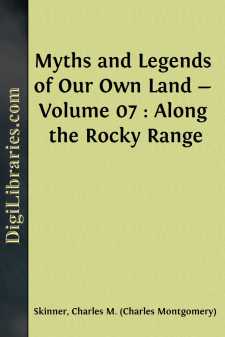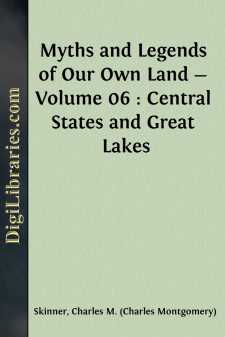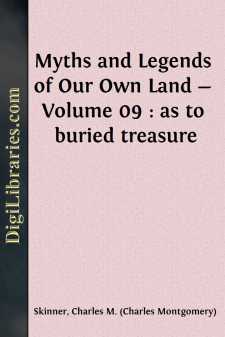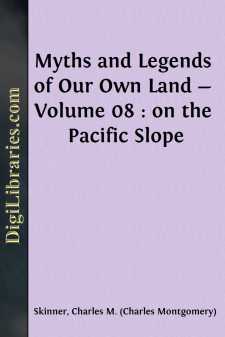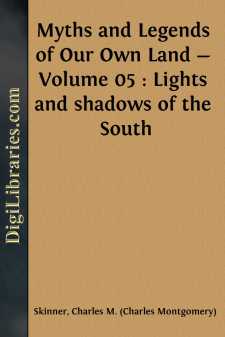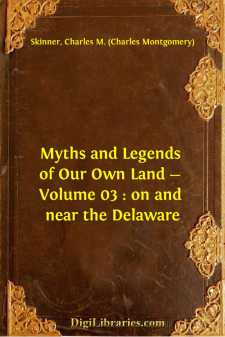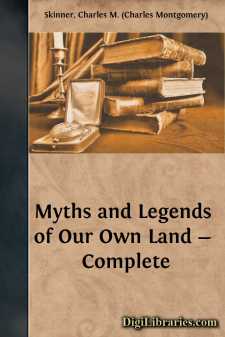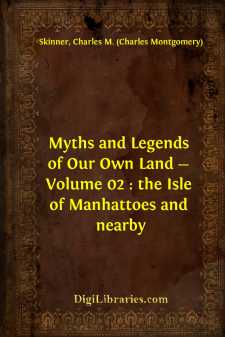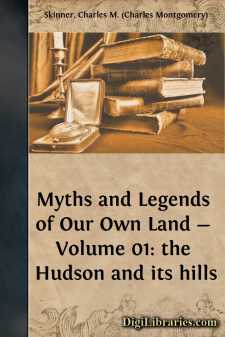Categories
- Antiques & Collectibles 13
- Architecture 36
- Art 48
- Bibles 22
- Biography & Autobiography 813
- Body, Mind & Spirit 142
- Business & Economics 28
- Children's Books 17
- Children's Fiction 14
- Computers 4
- Cooking 94
- Crafts & Hobbies 4
- Drama 346
- Education 46
- Family & Relationships 57
- Fiction 11829
- Games 19
- Gardening 17
- Health & Fitness 34
- History 1377
- House & Home 1
- Humor 147
- Juvenile Fiction 1873
- Juvenile Nonfiction 202
- Language Arts & Disciplines 88
- Law 16
- Literary Collections 686
- Literary Criticism 179
- Mathematics 13
- Medical 41
- Music 40
- Nature 179
- Non-Classifiable 1768
- Performing Arts 7
- Periodicals 1453
- Philosophy 64
- Photography 2
- Poetry 896
- Political Science 203
- Psychology 42
- Reference 154
- Religion 513
- Science 126
- Self-Help 84
- Social Science 81
- Sports & Recreation 34
- Study Aids 3
- Technology & Engineering 59
- Transportation 23
- Travel 463
- True Crime 29
Charles M. (Charles Montgomery) Skinner
Charles Montgomery Skinner (1852-1907) was an American writer and journalist renowned for his work in compiling and preserving folklore. He authored several volumes of American legends and myths, most notably "Myths and Legends of Our Own Land," which gathered various regional stories and contributed to the cultural heritage of the United States. Skinner's work is celebrated for its role in documenting the rich tapestry of American oral traditions and folklore.
Author's Books:
Sort by:
EVANGALINE The seizure by England of the country that soon afterward was rechristened Nova Scotia was one of the cruellest events in history. The land was occupied by a good and happy people who had much faith and few laws, plenty to eat and drink, no tax collectors nor magistrates, in brief, a people who were entitled to call themselves Acadians, for they made their land an Arcady. Upon them swooped...
more...
ALONG THE ROCKY RANGE OVER THE DIVIDE The hope of finding El Dorado, that animated the adventurous Spaniards who made the earlier recorded voyages to America, lived in the souls of Western mountaineers as late as the first half of this century. Ample discoveries of gold in California and Colorado gave color to the belief in this land of riches, and hunger, illness, privation, the persecutions of...
more...
AN AVERTED PERIL In 1786 a little building stood at North Bend, Ohio, near the junction of the Miami and Ohio Rivers, from which building the stars and stripes were flying. It was one of a series of blockhouses built for the protecting of cleared land while the settlers were coming in, yet it was a trading station rather than a fort, for the attitude of government toward the red men was pacific. The...
more...
KIDD'S TREASURE Captain Kidd is the most ubiquitous gentleman in history. If his earnings in the gentle craft of piracy were frugally husbanded, he has possibly left some pots of money in holes in the ground between Key West and Halifax. The belief that large deposits of gold were made at Gardiner's Island, Dunderberg, Cro' Nest, New York City, Coney Island, Ipswich, the marshes back of...
more...
THE VOYAGER OF WHULGE Like the ancient Greeks, the Siwash of the Northwest invest the unseen world with spiritual intelligence. Every tree has a soul; the forests were peopled with good and evil genii, the latter receiving oblation at the devil-dances, for it was not worth while to appease those already good; and the mountains are the home of tamanouses, or guardian spirits, that sometimes fight...
more...
THE SWIM AT INDIAN HEAD At Indian Head, Maryland, are the government proving-grounds, where the racket of great guns and splintering of targets are a deterrent to the miscellaneous visitations of picnics. Trouble has been frequently associated with this neighborhood, as it is now suggested in the noisy symbolry of war. In prehistoric days it was the site of an aboriginal town, whose denizens were like...
more...
THE PHANTOM DRAGOON The height that rises a mile or so to the south of Newark, Delaware, is called Iron Hill, because it is rich in hematite ore, but about the time of General Howe's advance to the Brandywine it might well have won its name because of the panoply of war—the sullen guns, the flashing swords, and glistening bayonets—that appeared among the British tents pitched on it. After the...
more...
RIP VAN WINKLE The story of Rip Van Winkle, told by Irving, dramatized by Boucicault, acted by Jefferson, pictured by Darley, set to music by Bristow, is the best known of American legends. Rip was a real personage, and the Van Winkles are a considerable family at this day. An idle, good-natured, happy-go-lucky fellow, he lived, presumably, in the village of Catskill, and began his long sleep in 1769....
more...
DOLPH HEYLIGER New York was New Amsterdam when Dolph Heyliger got himself born there,—a graceless scamp, though a brave, good-natured one, and being left penniless on his father's death he was fain to take service with a doctor, while his mother kept a shop. This doctor had bought a farm on the island of Manhattoes—away out of town, where Twenty-third Street now runs, most likely—and,...
more...
RIP VAN WINKLE The story of Rip Van Winkle, told by Irving, dramatized by Boucicault, acted by Jefferson, pictured by Darley, set to music by Bristow, is the best known of American legends. Rip was a real personage, and the Van Winkles are a considerable family at this day. An idle, good-natured, happy-go-lucky fellow, he lived, presumably, in the village of Catskill, and began his long sleep in 1769....
more...



